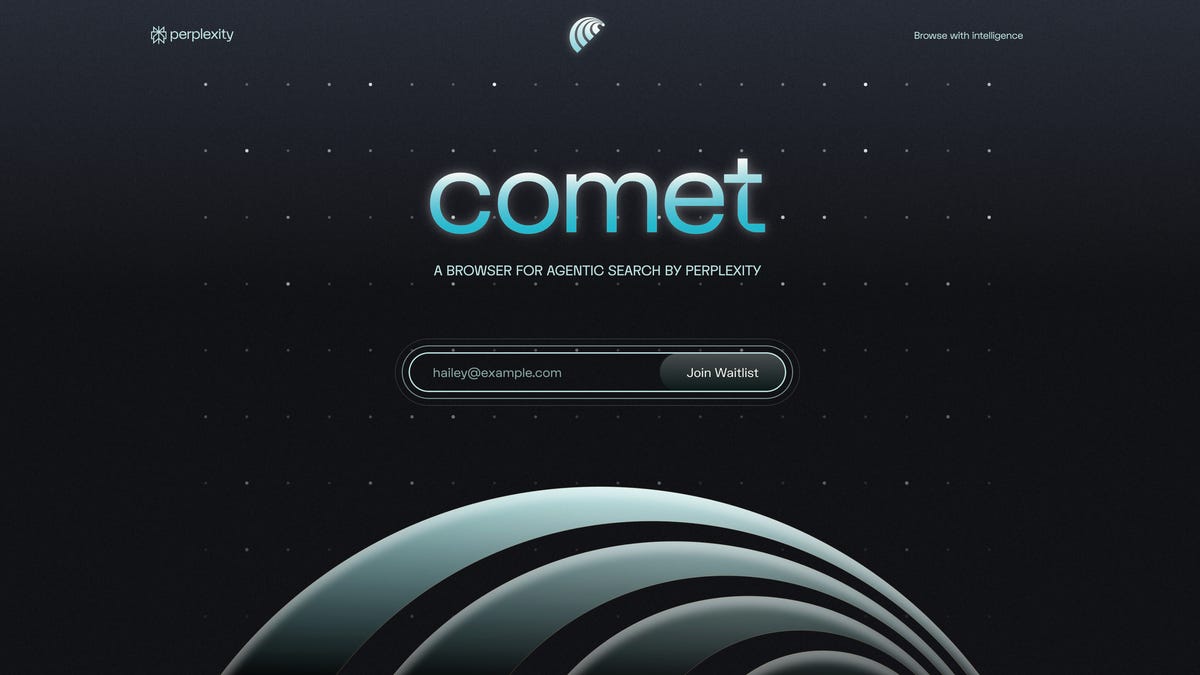It takes deep, below-the-navel brazen audacity to take on Google in online search. Just ask Microsoft, DuckDuckGo, Brave and the slew of other search engines that have tried to scrape away at Google’s near 90% global market share. It takes a kick in the head to think Google would sell Chrome, its wildly popular web browser.
It seems that AI search company Perplexity has a pair of grit and gall, along with a multitude of head fractures, as it not only aims to usurp Google in online search, it offered to buy Chrome outright for $34.5 billion, which is $14.5 billion more than Perplexity is valued at.
Apart from gaining access to billions of users overnight, Perplexity doesn’t really need Chrome. It already has its own AI-powered web browser, called Comet, and after using it for the past few weeks, I’m making it my default.
Comet is an AI-powered Chromium-based web browser that puts Perplexity’s answer engine at the core of the experience.
Chromium is an open-source web browser standard made by Google and allows anyone to build their own browser based on Chromium’s codebase. Browsers like Microsoft Edge and Opera are built on Chromium. Building a Chromium browser allows for a stable online experience with frequent security updates and interoperability with Chrome extensions.
So, Comet is essentially half Chrome minus the Google integrations.
Here’s what Comet can do that Chrome can’t: Questions typed into Comet’s address bar generate Perplexity AI summaries, with links to various sources. Highlighting text and right-clicking can bring up a Perplexity-powered search and summary. While watching a YouTube video, you can call on the Perplexity assistant to summarize it for you, and you can ask follow-up questions. That same summarization capability applies to articles as well. (Although as a journalist and someone who doesn’t suffer from TikTok brain, I just read articles through.) Comet also has agentic capabilities. For example, I can have Comet’s built-in AI assistant analyze a winning Grand Archive deck and it’ll automatically add those cards to my cart on TCGplayer, a separate marketplace for buying cards.
The AI power at the core of Comet changes how I use the internet in slight but meaningful ways. AI can expand upon an article on a political candidate, giving me the ability to ask about their policies and voting record. Or, when shopping for a mechanical keyboard, I can bring up the Perplexity assistant to ask about which switches on the market give the best “thock” with a “creamy” feel. (Perplexity strongly recommends the Gateron Oil King switches.)
Could I do the same just by opening a separate ChatGPT tab? Sure. But having it all built into the browser means I don’t need to spend time giving the AI chatbot necessary context. It can look at the screen I’m looking at and understand what I’m trying to expand upon.
Comet isn’t perfect, however. My biggest pain point is Perplexity itself. When I write, I often need to source other articles and pieces of information based on recency. Typing in “CNET Gemini” into the address bar, Perplexity gives me a summary of CNET’s coverage of Gemini and a few links, but not the kinds of links I’m looking for. I’m often looking for the most recent pieces CNET has published about Gemini. (The same applies when I search for “site:cnet.com gemini”.) This applies beyond just CNET-related backlinking. When researching other topics, I’m often trying to land on the most up-to-date stories and Perplexity tends to bring up more explanatory pieces.
I often find myself jumping to Google search as Google tends to index links by recency.
Another pain point is the consistency of Perplexity’s agentic capabilities. Last month, ChatGPT launched ChatGPT Agent. This new mode in ChatGPT lets an AI do research and browsing for you. It takes time, however. For example, I asked ChatGPT Agent to look for hotel rooms near the San Diego Convention Center between specific dates and under a specific price. It took ChatGPT Agent 15 minutes of web browsing to give me a few options. With Comet, Perplexity tried doing this task in as little as 30 seconds. The problem was that the hotel recommendations didn’t match the location or price I was looking for. Sure, I could go back-and-forth with Perplexity to help sharpen its focus, but it’d be a time suck.
In another test, I tried recreating the Grand Archive deck that I had built the day before. I pulled up a list of a winning deck and asked Perplexity to figure out how much it’d cost to build the exact same deck and to add those cards to my cart on TCGplayer. This time, Perplexity got stuck. It kept on trying to put together an accurate list but couldn’t actually move on to the step of going to TCGplayer. It’d ask if I were ready to move forward, to which I’d respond with an emphatic confirmation. Each time it’d spend a bunch of time thinking only to go nowhere.
So, when Perplexity works, it’s awesome. But getting it to work can feel like a dice roll.
Still, it’s too early to give Comet a final score. The browser is still limited to Max users and probably has a lot more updates on the way. Even then, it’s a glimpse as to what AI-powered web browsing will look like, and I expect Google to scramble and put something together to defend its market share.
